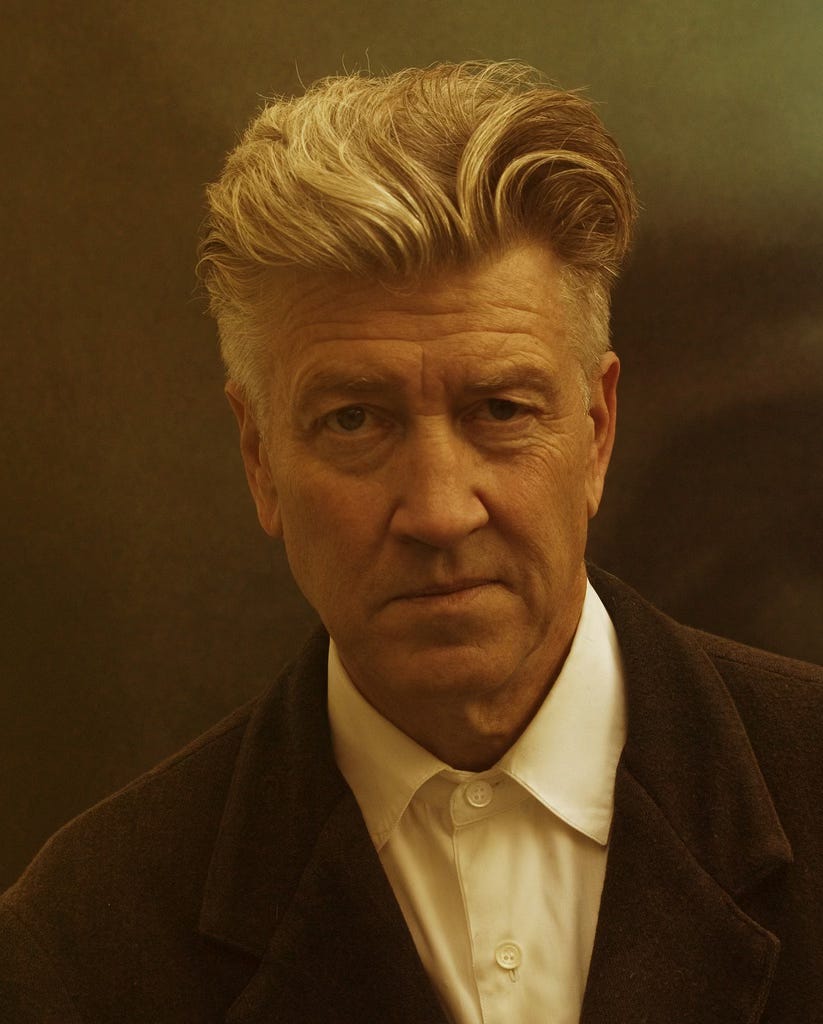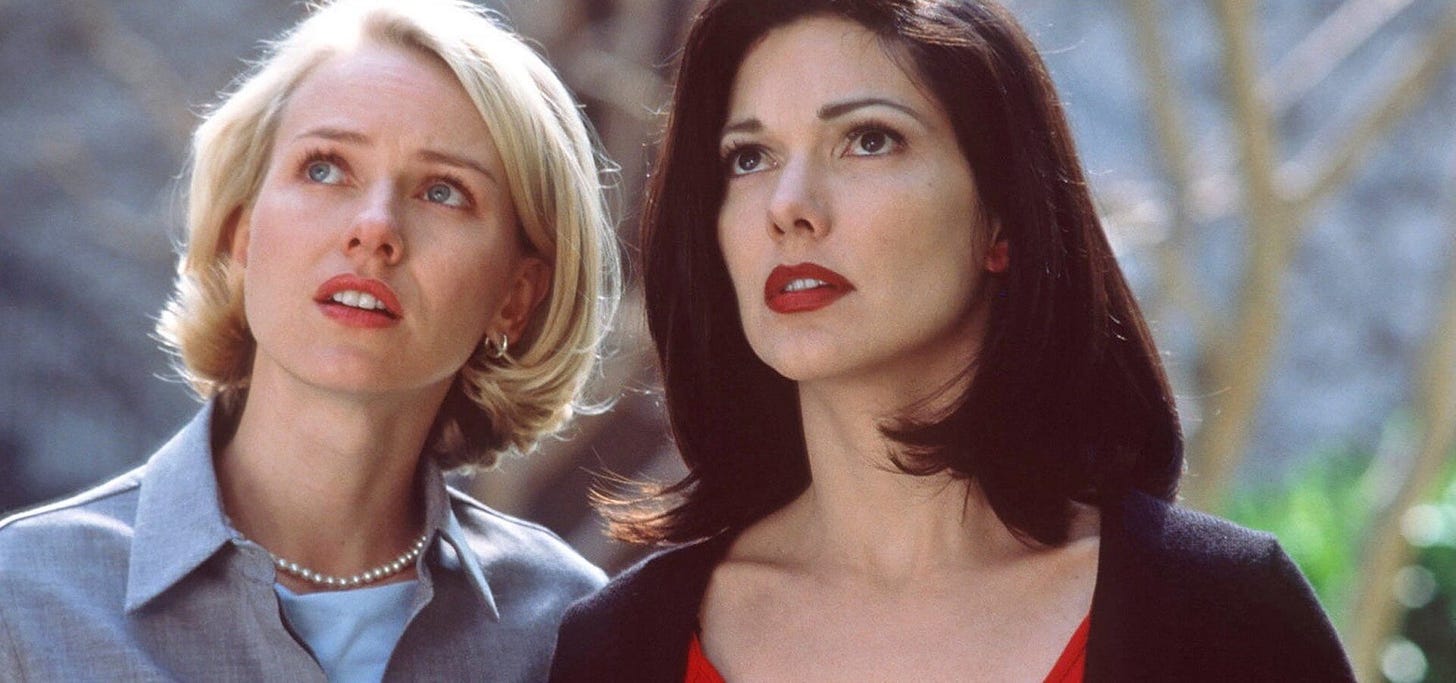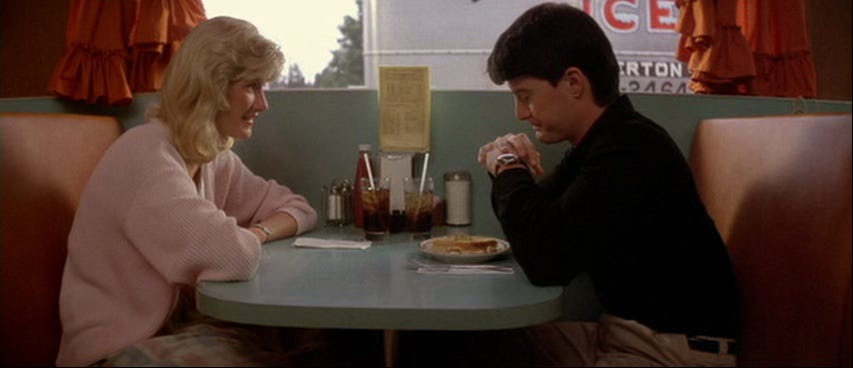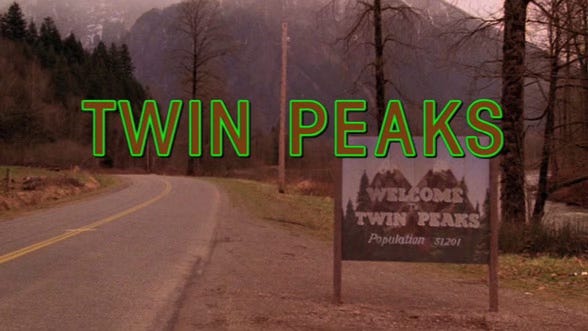"I'm seeing something that was always hidden. I'm involved in a mystery. I'm in the middle - of a mystery. And it's all secret."
Reflecting on the work of the iconic and visionary American director David Lynch, who passed away last week.
In news that brought down waves of sadness upon those of us who care about film and culture in general, the great director David Lynch passed on Weds. Jan 15th. Relative to the massive destruction created by the Los Angeles wildfires it might seem small, but Lynch’s passing due to complications from his emphysema had an outsized effect on his many admirers and appreciators far and wide.
I came to Lynch much later in my film-watching life than a lot of other great directors. It was a course I took as part of my masters degree at Wake Forest on Lynch and the British poet and artist William Blake that introduced me to his oeuvre. As part of that class, we watched Eraserhead, Blue Velvet, Wild at Heart, Lost Highway, Mulholland Drive, and Inland Empire (I should probably put quotation marks around "watched” when it comes to Inland Empire and to some degree Mulholland Drive).
While Lynch wasn’t as instant of a connection as with, say, Martin Scorsese, I still found delving into the world of Lynch to be quite fascinating. Lynch’s interest in the hallmarks of American culture, especially that 1950s American culture—cars, diners, detectives, things of that nature (even the music in his films—the prominent place that Roy Orbison’s songs possess in Blue Velvet and Mulholland Drive), those all spoke to me and resonated.
Lynch, like so many of my favorite artists, focuses on those American ideas and ideals and depicts their beauty but also is quite comfortable digging into and examining the rot and darkness lurking underneath the surface. I’m also an extremely avid and excessive coffee drinker, and I feel a great kinship with Lynch’s love for it too.
There’s also something quite Beat Generation about Lynch, which I as an appreciator of that literature picked up on. There’s certainly the surrealism that we associate with William Burroughs and the grotesque in Lynch’s films. It’s probably that which makes him so challenging for… well, quite a few viewers. But there’s also a good bit of Kerouac to Lynch given how much Lynch loves the tropes of America. I tried to write about this for my major assignment in that class, but I think I ultimately failed in my work. Perhaps it’s something I need to revisit…
As I started to dig a little deeper into film history, especially a director like Robert Bresson, I started to appreciate the strange-ness of Lynch’s approach when it comes to his actors and their performances. I think about what Susan Sontag wrote about Bresson:
Some art aims directly at arousing the feelings; some art appeals to the feelings through the route of the intelligence. There is art that involves, that creates empathy. There is art that detaches, that provokes reflection.
Great reflective art is not frigid. It can exalt the spectator, it can present images that appall, it can make him weep. But its emotional power is mediated. The pull toward emotional involvement is counterbalanced by elements in the work that promote distance, disinterestedness, impartiality. Emotional involvement is always, to a greater or lesser degree, postponed.
That’s something I’ve always noticed about Lynch’s output, though I didn’t realize that was what was going on or what I was feeling until much later (and I watched/engaged with Bresson’s filmography). That said, Lynch’s film work does so much more with the actors/not treating them as just models like Bresson did. Dennis Hopper, Isabella Rossellini, and Kyle McLachlan in Blue Velvet, Nicholas Cage and Laura Dern in Wild at Heart, Naomi Watts and Laura Harring in Mulholland Drive (just to highlight a quick few), Lynch allowed this performers to shine even amongst the strange and surreal worlds he created on screen (that felt surreal and strange even if they were happening in a small town in America or Los Angeles).
Lynch’s tragic passing has made me finally make the push to watch Twin Peaks. I’ve started it before, but didn’t really see it through/stick with it.
But given my desire to celebrate/reflect on Lynch’s work coupled with how much time I spend thinking about detective and noir fiction (a major component of my film classes deals with watching and defining film noir) as well as the things that I was just destined to enjoy about the show (the 50s/American sensibility, the philosophy and questioning underneath everything going on in the narrative), I’ve finally gotten into it. It’s still amazing to me that the first two seasons of the show could air on regular network television. I think it would be shocking and challenging if it were released for the first time today on prestige cable. But this was on ABC!
Once I make my way through the entire Twin Peaks experience (the three seasons and the Fire Walk With Me film), I will assuredly be writing extensively about it. But until then, let’s all take a moment to appreciate the work and life of one of the greatest and most fascinating figures in American cinematic history.







